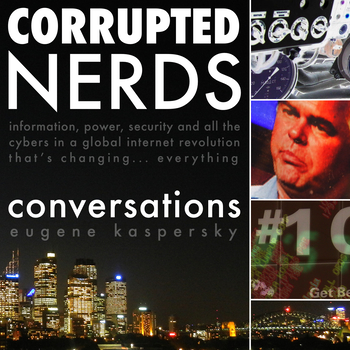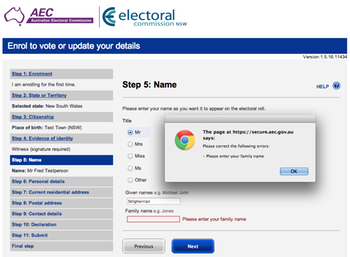![]() “The medium is the message”, the sole phrase that seems to remembered of Marshall McLuhan’s work, certainly held true in Friday’s story at The Global Mail, Twitter Tackles Open Government.
“The medium is the message”, the sole phrase that seems to remembered of Marshall McLuhan’s work, certainly held true in Friday’s story at The Global Mail, Twitter Tackles Open Government.
The piece is a follow-up to an article published on Thursday, Why So Secretive?, by OpenAustralia founders Katherine Szuminska and Matthew Landauer — a stinging attack which alleges that Australia’s Department of Immigration and Citizenship (DIAC) is “unlawfully obstructing over 100 Freedom of Information (FOI) requests from the general public in an attempt to maintain secrecy”.
Friday’s article centres on a subsequent discussion on Twitter between DIAC national communications manager and “avid tweeter”, as The Global Mail quaintly describes him, Sandi Logan.
In 2013, isn’t it just a bit retro to draw attention to someone using Twitter a bit? Particularly when it’s their job to respond to public comment?
Anyway, here’s what I tried to post as a comment at The Global Mail just now, only to be told: “Your comment was unable to be posted at this time. We apologise for the inconvenience.”
The medium truly is the message. The first of Logan’s statements quoted in this story contains 68 words of substantive content, counting the URLs as one word each, and 48 of those are a direct quote from legislation.
Anywhere else this would be a “brief statement”, perhaps even a “terse statement” if the journalist was wanting to pre-judge Logan’s mood on the readers’ behalf — but I was once taught not to do that because it’s editorialising.
But because Logan’s words are spread across four tweets, it becomes a “flurry”. Really?
The Macquarie Dictionary gloss for “flurry”, skipping over the literal weather-related ones, is: “3. commotion; sudden excitement or confusion; nervous hurry.”
Logan’s entire conversation reads to me as a perfectly level-headed conversation with critics. Certainly his initial comment is one simple, coherent paragraph, spread across four tweets only because the limits of the medium demand it.
Now that I’m blogging this, I’ll add my usual gripe about the headline.
“Twitter Tackles Open Government”? No, the San Francisco-based company did no such thing. Nor did the abstract communications network that operates via their servers. People tackled a DIAC staffer. And as far as I can see, all but one of the people quoted was a journalist. The medium through which that happened is hardly relevant.
A handful of journalists and sprinkling of public policy advocates is hardly representative of Twitter users as a whole. If we analysed the level of Twitter discussion about DIAC that night, in comparison with the global firehose of tweets, I doubt that we’d even see a prostate-corked dribble.
Still, a more accurate headline, such as “A few journalists question a media adviser”, would detract somewhat from the “power to the people” theme.
The icing on the cake for me is that the article is about demands for DIAC to be more transparent, and that commenters at The Global Mail are advised that “you have a lot more credibility when you use your full name”, and yet it’s bylined… “By Staff”.
Goose, gander etc, folks.
[Disclosure: I know Katherine Szuminska and Matthew Landauer, and have had dinner and drinks with them on numerous occasions. For what it’s worth, I generally support their calls for more government transparency. Browsing through what I’ve written previously will soon reveal my attitude towards the government’s asylum-seeker policies.]

 After 15 years, the Australian Taxation Office (ATO) finally launched a Mac OS X version of its
After 15 years, the Australian Taxation Office (ATO) finally launched a Mac OS X version of its 

 Maybe if we all run around like headless chooks, Mr Obama will say “Oh, sorry” and disband the NSA. And then Mr Obama will mount his trusty cyberpig and fly to the Moon, leaving behind a chemtrail of glitter and Bitcoins.
Maybe if we all run around like headless chooks, Mr Obama will say “Oh, sorry” and disband the NSA. And then Mr Obama will mount his trusty cyberpig and fly to the Moon, leaving behind a chemtrail of glitter and Bitcoins. Monday night’s
Monday night’s